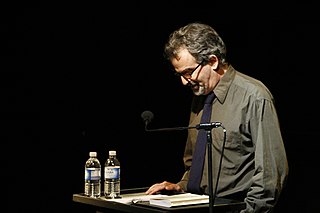A Quote by Donald Hall
The pleasure we feel, reading a poem, is our assurance of its integrity.
Related Quotes
?Reading good literature is an experience of pleasure...but it is also an experience of learning what and how we are, in our human integrity and our human imperfection, with our actions, our dreams, and our ghosts, alone and in relationships that link us to others, in our public image and in the secret recesses of our consciousness.
I just think that the world of workshops - I've written a poem that is a parody of workshop talk, I've written a poem that is a kind of parody of a garrulous poet at a poetry reading who spends an inordinate amount of time explaining the poem before reading it, I've written a number of satirical poems about other poets.
Because we haven’t been taught to appreciate and love ourselves in this way, we don’t feel like we deserve self-care and pleasure. Instead, we cling to our To Do lists and sacrifice our health and well-being for the sake of others. Then, when we feel deprived of our basic human need for relaxation and enjoyment, we turn to food as our sole source of pleasure. When we then try to deprive ourselves of food through dieting, we deny the last bit of pleasure we have in our lives. And that strategy never works!
One day while studying a Yeats poem I decided to write poetry the rest of my life. I recognized that a single short poem has room for history, music, psychology, religious thought, mood, occult speculation, character, and events of one's own life. I still feel surprised that such various substances can find shelter and nourishment in a poem. A poem in fact may be a sort of nourishing liquid, such as one uses to keep an amoeba alive. If prepared right, a poem can keep an image or a thought or insights on history or the psyche alive for years, as well as our desires and airy impulses.
At the heart of our desires is eternal happiness without the slightest hint of misery. You could say that we are pleasure seekers; however, seeking pleasure from the objects of our five senses produces fleeting moments of pleasure whereas, pleasure of one's self, a soul, is eternal and ever-increasing pleasure.







































